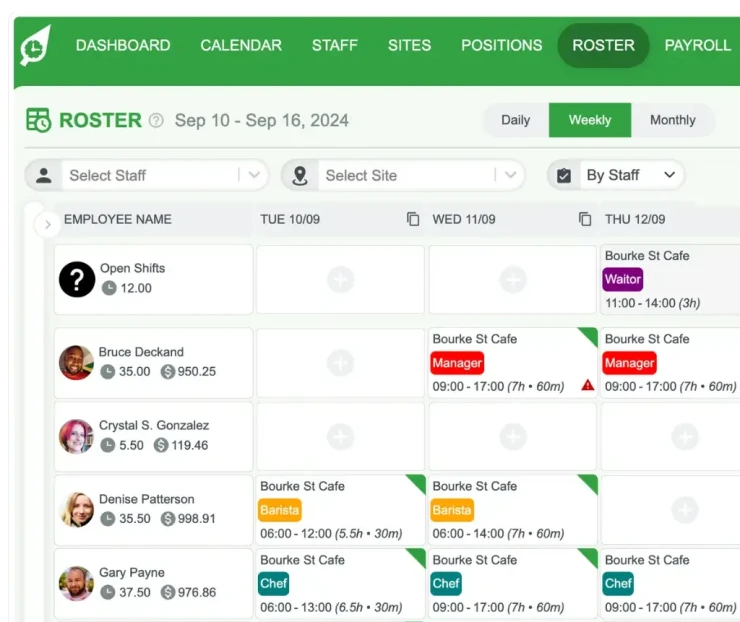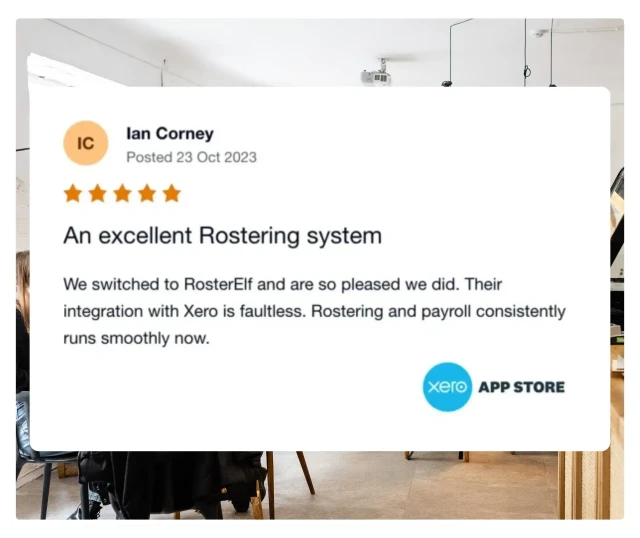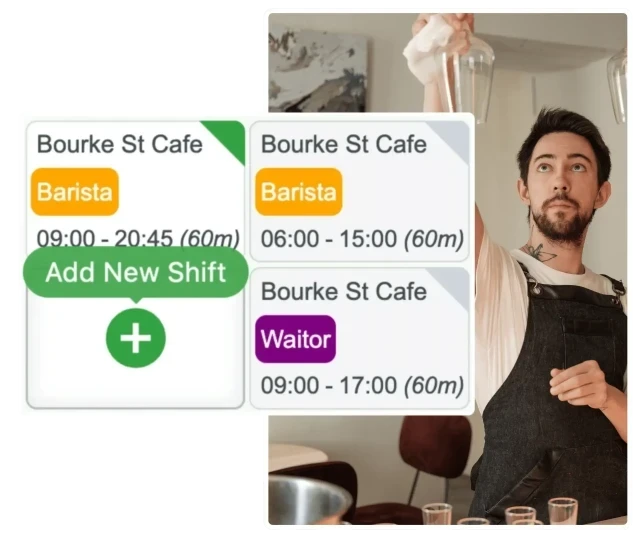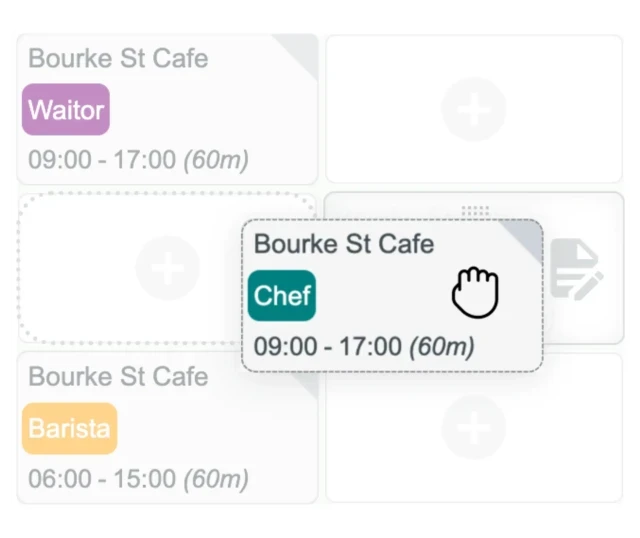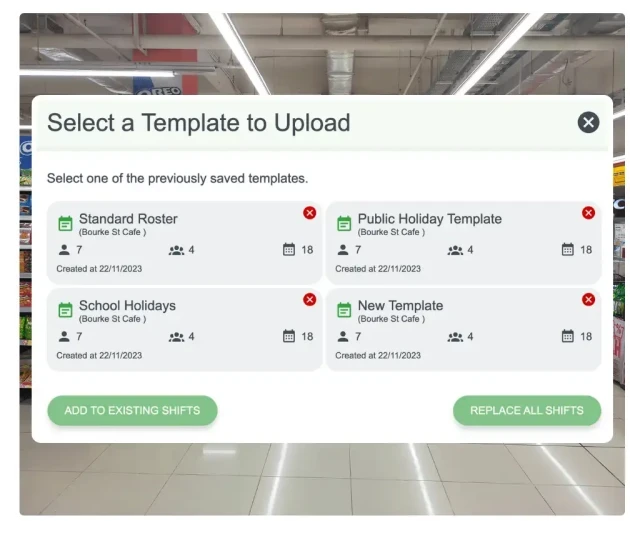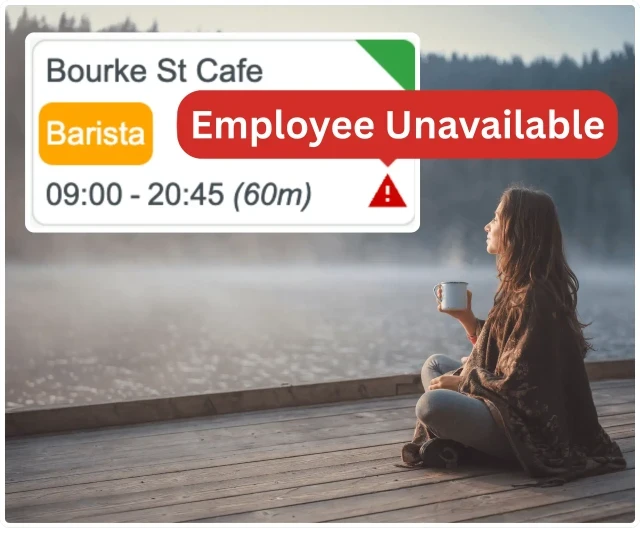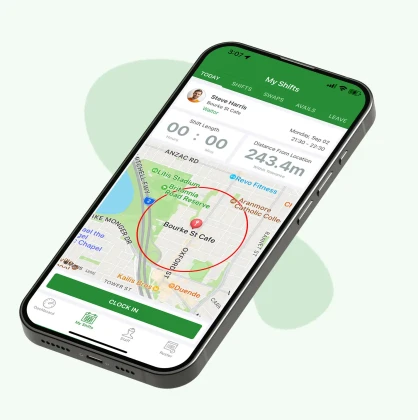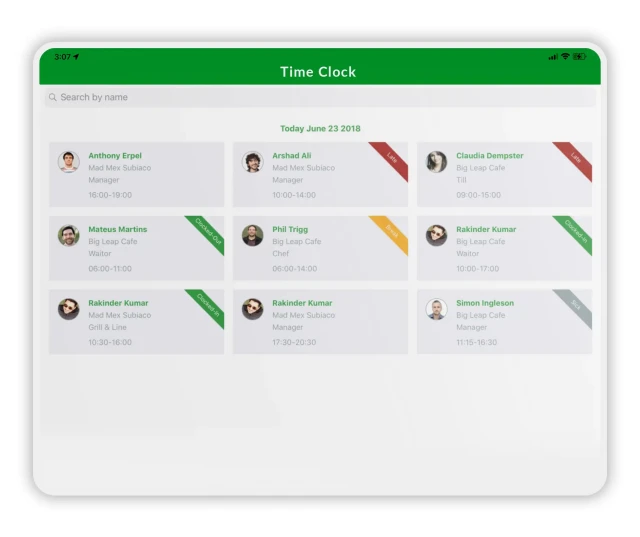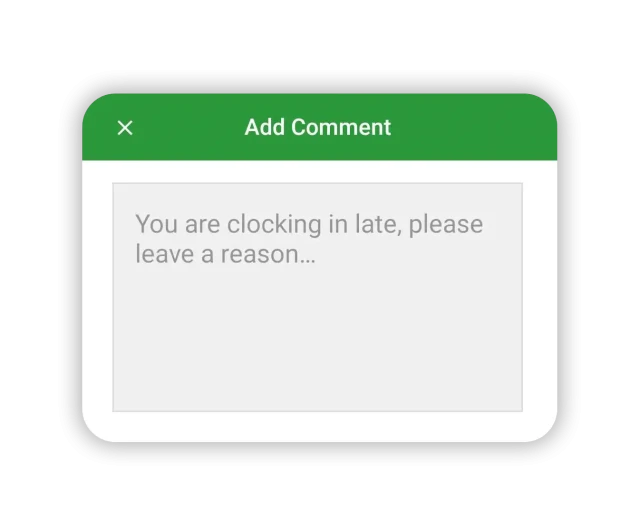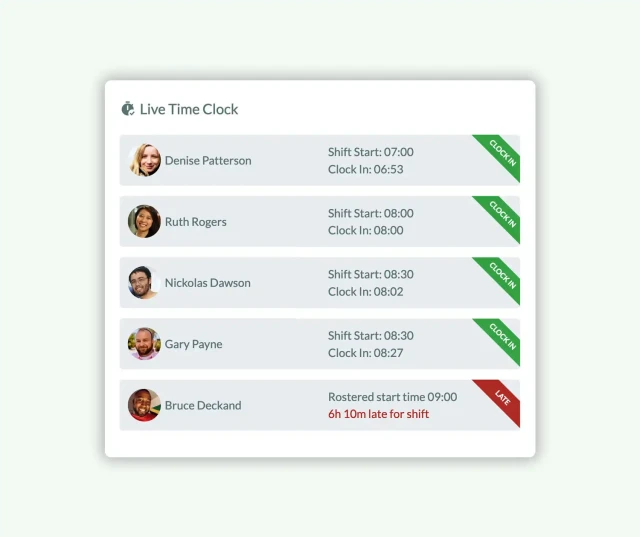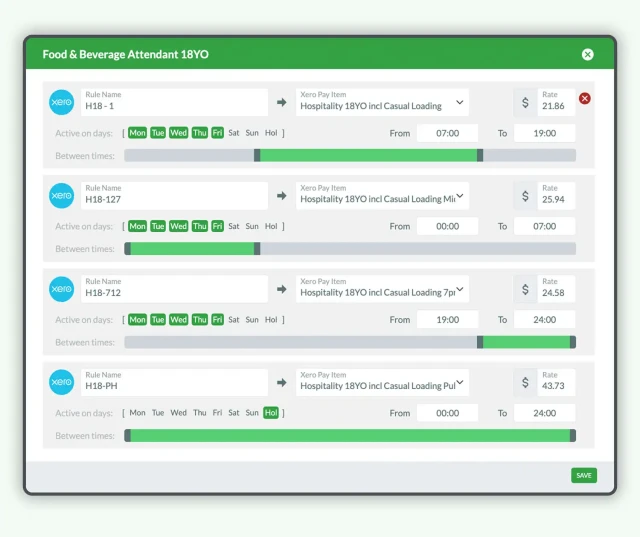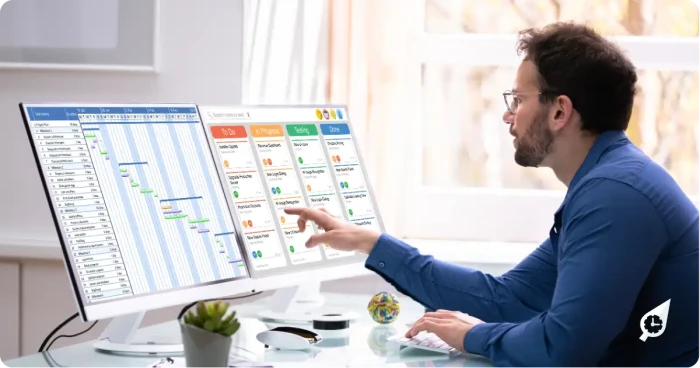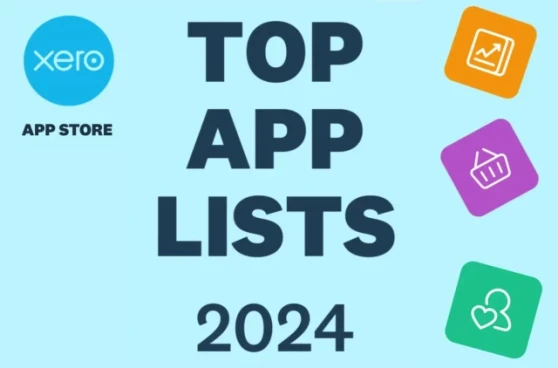Key Reasons Why RosterElf is Simple and Intuitive:
- Clean, User-Friendly Interface: Designed to be intuitive, the platform allows managers and staff to navigate effortlessly, reducing training time and minimising user frustration.
- Quick and Efficient Updates: Managers can easily create, update, and adjust rosters in seconds, handling last-minute requests or shift swaps with just a few clicks.
- Mobile-Friendly Design: With dedicated apps available for smartphones and tablets, RosterElf ensures that scheduling can be done from anywhere, making it perfect for managers and staff on the move.
- Simplified Shift Swaps: Employees can request shift swaps directly through the platform, while managers can approve changes instantly, ensuring smooth and fast rostering adjustments.
- Real-Time Notifications: Managers and employees receive real-time notifications of any scheduling changes, ensuring everyone is on the same page without delay.
- Less Administrative Overhead: The streamlined design and automation tools reduce the need for time-consuming administrative tasks, allowing businesses to focus on more strategic operations.
- Accessibility Across Devices: Whether using the desktop version or the mobile apps, RosterElf is designed to be responsive and accessible, giving you complete control over scheduling from any device.
